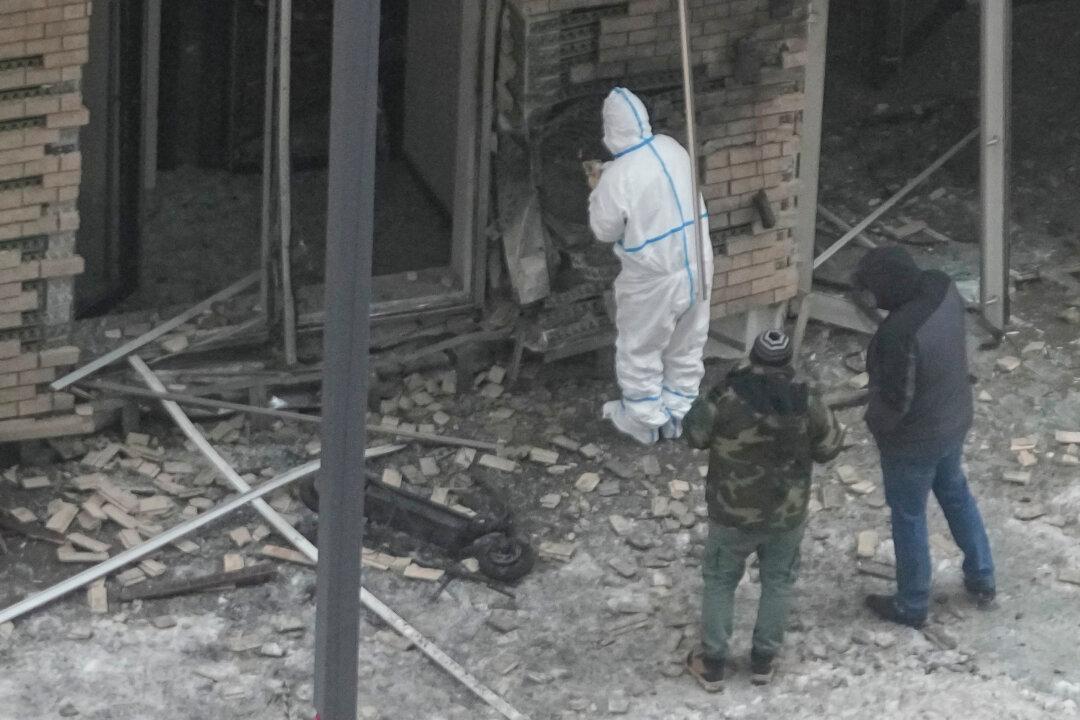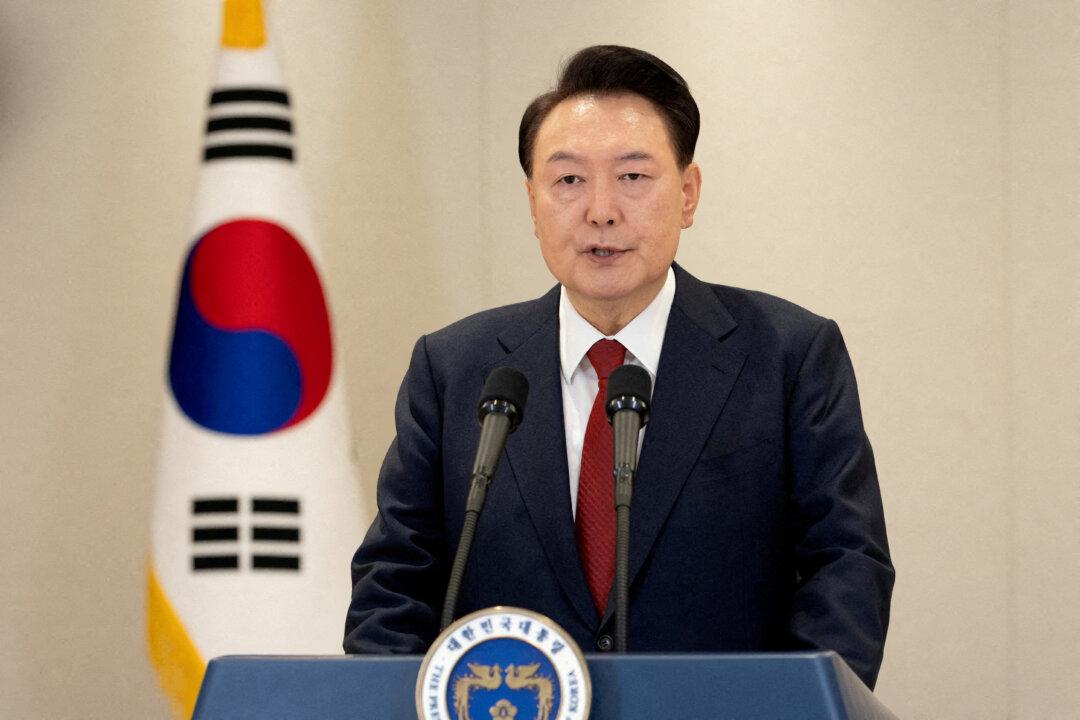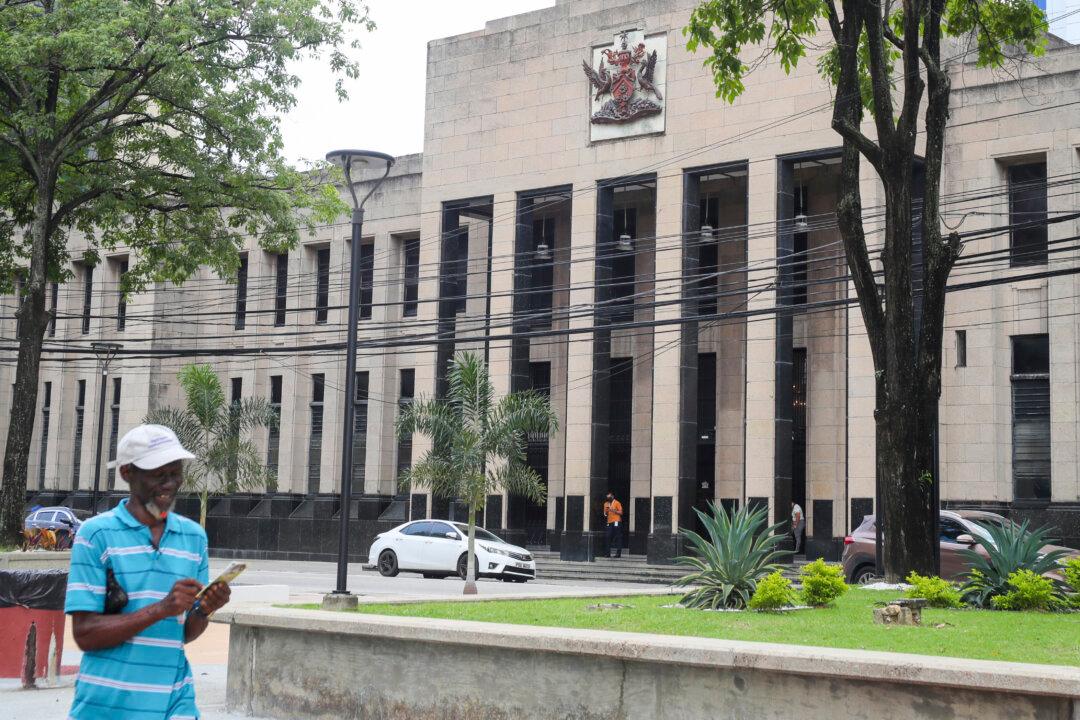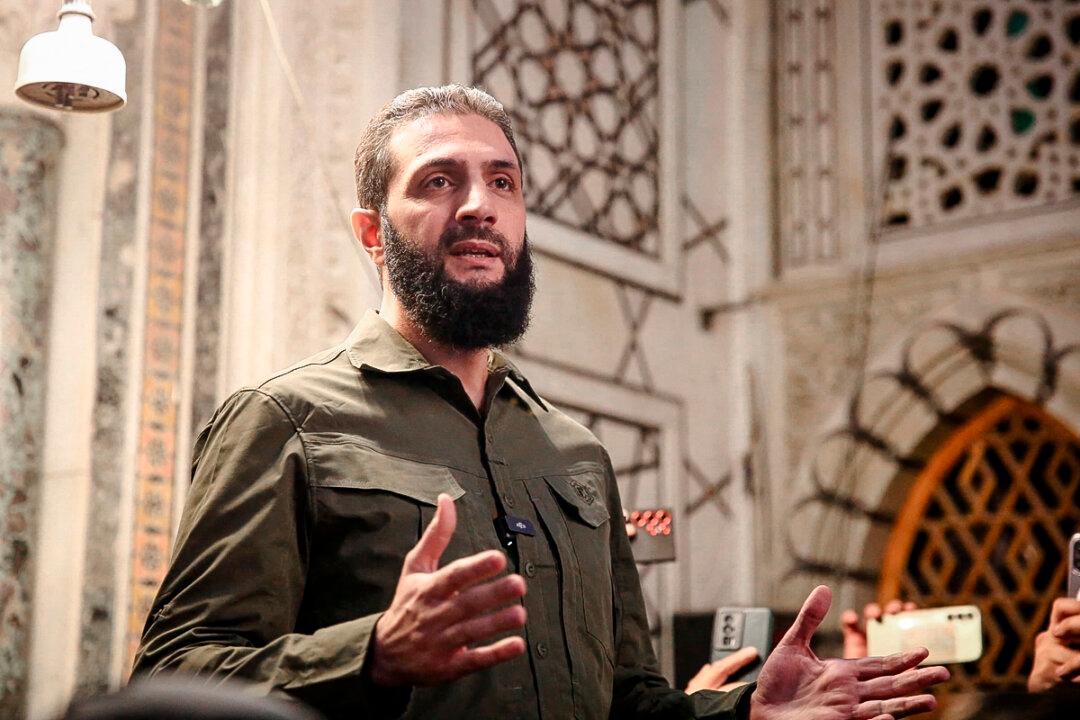An Uzbekistan national who allegedly planted a scooter bomb that killed Lieutenant General Igor Kirillov has been arrested in Moscow, says a Russian investigative committee.
The Russian news agency TASS reported that the Federal Security Service (FSB) published a statement saying the 29-year-old suspect confessed to having been recruited by the Ukrainian security services.
The FSB said the suspect—who they have not named—had been promised $100,000 and permission to move to a European Union country if he killed Kirillov, who was the head of Russia’s Nuclear, Biological, and Chemical Defense Forces.
Kirillov, 54, who was named the head of Russia’s nuclear defense forces in April 2017, and his assistant were killed by a bomb hidden in a scooter as they left Kirillov’s apartment block in Moscow’s Ryazansky Prospekt on Dec. 17.
On Dec. 16, Kirillov had been sentenced in absentia by a Ukrainian court over Russia’s alleged use of banned chemical weapons during the war in Ukraine.
TASS posted what it described as an “interrogation video” of the Uzbek suspect, which had been released by the FSB and showed a man saying, “I came to Moscow on an assignment from the Ukrainian security services.”
The FSB said the suspect admitted to purchasing the scooter and said several months later he was given the materials to make the bomb.
“In his testimony, the man claimed to have placed the scooter with the bomb near the residence of the general,” TASS stated.
The FSB said the Uzbek rented a car and set up a camera that livestreamed the scene to his Ukrainian handlers in the city of Dnipro.
‘I Pressed The Button’
“When he left the house, I pressed the button,” the man allegedly confessed.An official in Kyiv has confirmed the Ukrainian Security Service (SBU) carried out the attack.
The FSB stated that if convicted, the Uzbek suspect faces life imprisonment. Russia has had a moratorium on executions since 1996, although the death penalty is still on the statute books.
Uzbekistan is a former Soviet republic in Central Asia that has a small land border with Afghanistan.
Many Uzbeks and other citizens of former Soviet republics move to Moscow and other Russian cities for work.
Russia’s President Vladimir Putin has not yet commented on the killing of Kirillov but Dmitry Medvedev, who is deputy head of the country’s security council, said on Dec. 17 that the attack was an attempt by Ukraine to distract from its failures on the battlefield and promised Kyiv’s “senior military-political leadership will face inevitable retribution.”
The Russian foreign ministry said it would raise Kirillov’s assassination at the United Nations Security Council in New York City on Dec. 20.
Kirillov held numerous briefings since the start of the conflict in February 2022, in which he accused the Ukrainian military of using toxic agents and planning to launch attacks with radioactive substances.
Kyiv and its Western allies said his claims were false and constituted propaganda aimed at a Russian audience.
The SBU said they had recorded more than 4,800 uses of chemical weapons on the battlefield since 2022.
Kirillov Accused By Ukrainians
During the 105th Session of the Executive Council of the Organisation for the Prohibition of Chemical Weapons in March, the Ukrainian delegation said: “Russian head of the Russian terrorist CBRN troops, I. Kirillov has alleged that Ukraine is using substances prohibited by the Convention on the front line. ... In fact, Kirillov’s words have nothing to do with reality. Their purpose is to produce an information environment that supports a future Russian chemical weapon false flag operation on the territory of Ukraine.”The statement went on to accuse the Russians of using toxic chemicals against Ukrainian troops.
“We have recorded 346 individual toxic chemical incidents in 2024 so far—equivalent to 6 Russian breaches of the CWC per day,” it reads.
“The use of chemical weapons is seen by the enemy as a means of gaining tactical advantages and demoralising the Ukrainian Defense Forces.”

It is not clear whether Kirillov had a role in the Skripal or Navalny incidents.
In May, the U.S. State Department said it had recorded the use of chloropicrin—a chemical weapon that was invented during World War I—against Ukrainian troops.
Ukraine has targeted a number of individuals in Russia over the past two years.
In December 2023 Illya Kyva, a former pro-Russian Ukrainian MP in Ukraine, was assassinated near Moscow.
Then earlier this month, Sergei Yevsyukov, 49, the head of the Russian-operated Olenivka Prison, was killed in the Russian-held city of Donetsk, Ukraine, when a bomb exploded under his car.
There have been several other unconfirmed assassinations.
Since first invading Ukraine in February 2022, Russia has seized large parts of the Donbas region and southern Ukraine, along with Crimea, which it annexed in 2014.






